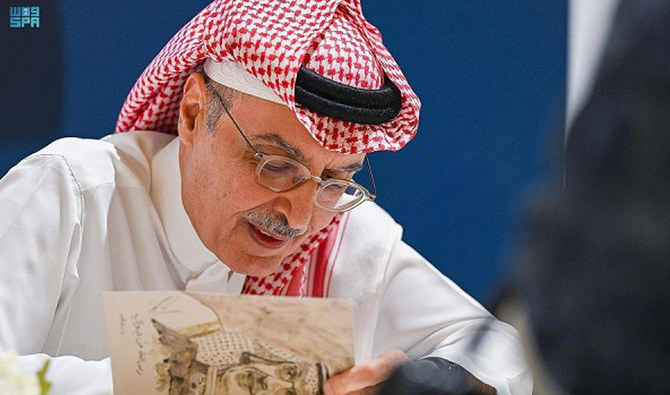ISLAMABAD: Prime Minister Shehbaz Sharif on Sunday extended his heartfelt condolences to Saudi Arabia’s Royal Family on the death of eminent Saudi poet, Prince Badr bin Abdul Mohsen, saying his legacy would continue to inspire generations to come.
The prince, affectionately known as the “word engineer,” was a legendary figure in contemporary Saudi poetry whose influence in the art form was felt across the country and the wider Gulf region, where his eloquent verses and poignant prose left an indelible mark on the people’s hearts and minds.
A pioneer in the popularization of Saudi poetry among Arab audiences, Prince Badr’s verses were immortalized in songs by many esteemed Arab artists, including Talal Maddah, Mohammed Abdu, Kadim Al-Sahir and Assala. His patriotic words and songs struck a deep chord with Saudis in particular.
In a post on X, Sharif said Prince Badr’s most popular song on Saudi Arabia’s National Day would always remind the world of his profound love for his country.
“His contributions to contemporary poetry in the Arabian Peninsula were truly remarkable and his legacy will continue to inspire generations to come,” the Pakistan premier said.
“May his soul rest in peace and may his words forever resonate in the hearts of poetry lovers around the world.”
Prince Badr was born on April 2, 1949, and his journey as a poet and cultural figure began at a young age. He studied in Saudi Arabia, Egypt, the UK and the US as he took his early steps on the path to becoming a significant figure in Arab literature.
As president of the Saudi Society for Culture and Arts, he played a crucial role in fostering artistic expression and influencing the development of poetry organizations in the Kingdom. In recognition of his outstanding contributions in the field, King Salman honored Prince Badr with the prestigious King Abdulaziz Medal in 2019.
Soon after, the Kingdom’s Literature, Publishing and Translation Commission announced plans to collect and publish his complete literary works to commemorate his enduring legacy and celebrate the profound impact he had on the Saudi creative movement during a five-decade career.


















